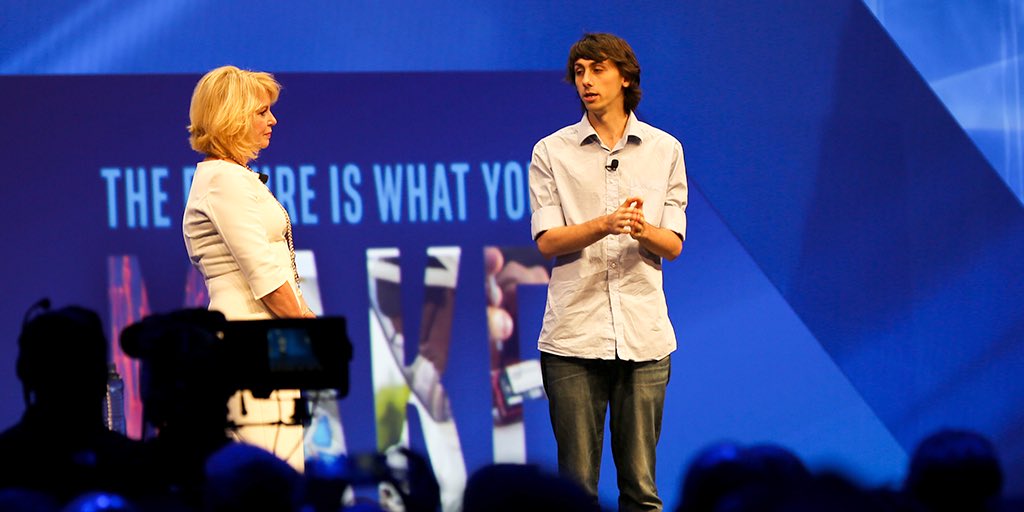
Alumni affinity for a school can make for the easy formation of a group of successful executives and business people with the money to invest. They may be the popular new kids on the block, but increasingly members of an older investment group type, the angel network, are looking to join in. Interested alumni from the University of Texas, UCLA and USC have all come calling, looking for a local chapter or fund of their own. The programs have grown fast, with Rough Draft backing 50 startups so far and Dorm Room Fund 110 of its own while expanding to New York, Boston and the Bay Area. “When your partners are your peers, you can break down barriers to move a lot quicker.” “At the time there weren’t a lot of investors for student entrepreneurs, and the thinking was, who would be better to invest than their peers,” says Dorm Room’s director Rei Wang. Weeks later, Rough Draft Ventures began working with students at Boston-area colleges, investing $25,000 with General Catalyst’s support. Dorm Room Fund, backed by First Round Capital, invests checks of about $20,000 through on-campus student investors, initially in the VC firm’s backyard of Philadelphia. In late 2012, two venture firms launched on-campus programs to help students invest and work with their peers. But like with grants for their peers, students who look to university support sometimes must wait weeks or months for a decision. Such programs can be effective in providing students work space and enough money to justify turning down a summer job or committing their spare time to a startup idea. And as more funds and vehicles create more options for students, the result will be more choice-and perhaps more uncertainty-as investors look to tap tech founder talent straight from the source. By raising an independent fund focused on a specific university network, Fiance’s fund is at the forefront of a surge in college-focused investment activity. So what’s so interesting about The House Fund (Fiance’s own energy and personal networking aside) goes beyond the $50,000 checks that the fund will write. But by any measure, The House Fund’s size is modest at a time when even some of the best seed investors have moved to ever larger-sized funds. Midas List staples Chris Sacca and Steve Anderson started with funds of $8 million and $10 million. Outsized wins out of small bets have been the ticket to success for some of venture capital’s biggest success stories. Fiance’s $6 million fund can back 50 companies, he says, and selectively continue to invest in winners that emerge. Called The House Fund, it will invest initial, “pre-seed” checks into startups cofounded by a Berkeley student or alumni. To great fanfare from the tech press, Fiance announced a new fund last week that hopes to help Berkeley catch up. “We hadn’t done the best job engaging the Silicon Valley world.” Beyond GC, Boyce has experience co-founding and running Rough Draft Ventures, a program that helps incubate startups founded by students and recent graduates, as well as promote entrepreneurship on campuses.“We looked so fragmented,” says Fiance. He’s also supported portfolio companies such as Giphy, Jet.com and Circle.

For an investor to leave a prominent venture capital firm after an eight-year tenure to raise dozens of millions of his own - and somehow do so quietly and with minimal coverage - might be a result of the funding frenzy and consequential numbness to yet another filing.īoyce joined GC in 2013 and led investments in Ro, Macro, towerIQ and Atom. It’s been a quiet transition for the investor his LinkedIn and Twitter have not been updated to indicate his new job title, but his personal website indicates the new gig. Sources say that most, if perhaps not all, of that total has been closed since the initial SEC filing in April.īoyce declined to comment for this story.

His new firm is called Stellation Capital, and filings indicate that he is looking to raise up to $40 million for the debut investment vehicle. Peter Boyce II has left General Catalyst to start his own firm, a little over a year after the venture capital firm promoted him to partner.


 0 kommentar(er)
0 kommentar(er)
